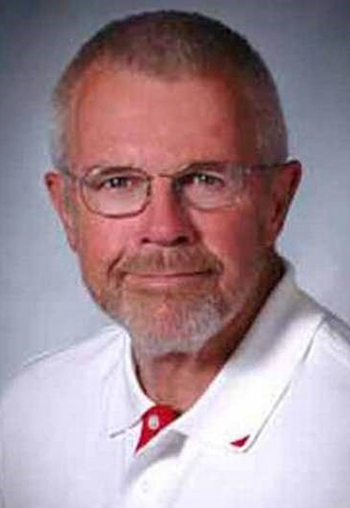 Charlie O'ReillyCharlie O’Reilly encourages Catholics to see an increase in the minimum wage as a matter of faith, not politics.
Charlie O'ReillyCharlie O’Reilly encourages Catholics to see an increase in the minimum wage as a matter of faith, not politics.
O’Reilly, the former president and CEO of O’Reilly Auto Parts, is a parishioner at St. Elizabeth Ann Seton Parish in Springfield, Mo. He’s among more than 500 signers of a statement by Missouri Business for a Fair Minimum Wage on Proposition B. The initiative on the ballot in November would raise Missouri’s minimum wage to $12 by 2023.
As a Catholic, O’Reilly said, “it’s a pretty easy connection — social justice and helping those who need help.”
The Peace and Justice Commission of the Archdiocese of St. Louis has endorsed Proposition B, and the Missouri bishops issued a statement supporting the intent of Proposition B, stating that, while recognizing that too-high of a minimum wage can have a chilling effect on hiring, “too many Missouri citizens live at or below the federal poverty level, including some who work more than one job to support themselves, and a significant percentage of children, who are often supported by the wages of just one parent or caregiver.”
O’Reilly is among the most outspoken business leaders who support the proposition because “it’s good for business, customers and our local economy.” He wrote op-ed columns on the issue in the Kansas City Star and Springfield News Leader newspapers.
He states that the increase is needed because the cost of basic necessities has increased, yet in Missouri people working 40 hours a week for the minimum wage of $7.85 barely make $16,000 a year.
“I believe it should be a core value that no one who works full time should have to live in poverty and struggle to make ends meet for the family,” he said.
As a retiree, O’Reilly volunteers with various social service agencies such as United Way, the Community Partnership of the Ozarks and other agencies. “The root cause of so many of the social problems in the community is low pay,” he said. “People at the low wage scale can’t get a full-time job because they can’t afford day care,” he said.
Retail clerks, classroom aides, home health care workers, custodians and others are hard-working people, but their pay often is a non-living wage, he said. “If we are fortunate enough to be financially successful then we have an obligation to share, to help, to give back,” he said. “That certainly comes directly from my Catholic school upbringing and the influence of my Catholic parents and Catholic family.”
As a business owner, he sought to enable workers to earn enough to have a decent life, he said. In 1993, the decision was made for the company to go public, and along with that came pressure to control costs, he said, bringing a “pull-and-tug” between shareholders and employees. “We adopted a policy of meeting or exceeding competitors in comparable wages for comparable skills,” he said.
The company was built on the premise that employees who work hard can rise in responsibilities, job description and pay scale quickly, he added.
The country and state owe workers a decent, living wage, O’Reilly said. The increase also is good for business, he said, by reducing turnover and putting more money into the hands of people who will increase spending in the state.